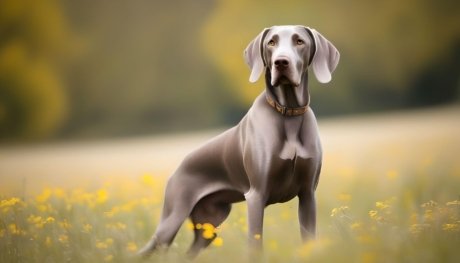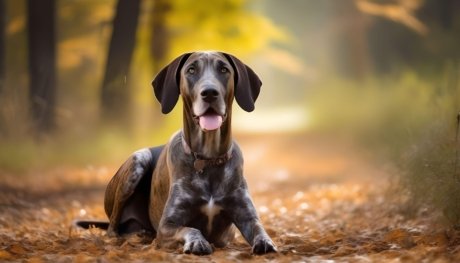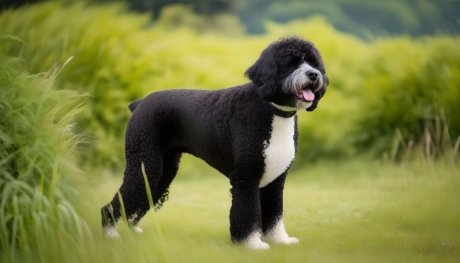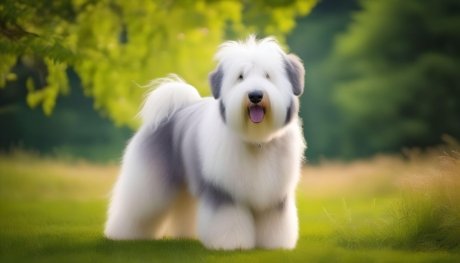Havanese Dog | 2 Types, Price, Breed Profile, Monthly Cost, Care Tips
Are you thinking about getting a pet? Look no further than the gorgeous and friendly Havanese dogs. Havanese dogs have won the hearts of dog lovers all over the world due to their charming personalities and fascinating beauty. In this comprehensive guide, we will cover all you need to know about Havanese dogs, from their history and traits to their care requirements and health issues. Whether you’re a seasoned dog owner or a first-time pet parent, join us as we explore the beautiful world of Havanese dogs and learn why they’re such cherished friends.
Havanese
The Havanese dog, with its charming and affectionate nature, has captured the hearts of dog lovers worldwide. Originally hailing from Cuba, this breed has a rich history that stretches back many centuries. In the past, Havanese dogs were highly regarded by the Cuban aristocracy and nobility, who adored their small stature, playful temperament, and stunning, silky coats. These qualities made them a symbol of elegance and sophistication.

One of the most endearing qualities of the Havanese dog is its friendly and outgoing nature. They thrive on human companionship and are known to be excellent family pets. Havanese dogs are highly sociable and get along well with people of all ages, including children and seniors. Their adaptable nature makes them well-suited to various living situations, whether it’s a bustling family household or a quiet home with a single individual.
Intelligence is another notable characteristic of the Havanese breed. They are quick learners and eager to please, which makes training a joyful experience for both the dog and its owner. With consistent and positive reinforcement, Havanese dogs can master a wide range of commands and tricks. Their intelligence also extends to their problem-solving abilities, as they can find clever ways to overcome obstacles or puzzles.
The Havanese breed requires frequent maintenance to keep their lovely coats in good condition. Their hair grows continually, much like human hair, and must be brushed to avoid matting and tangling. Many owners want to keep their Havanese’s coat long and flowing, while others choose a shorter, more controllable trim. Bathing, nail trimming, and ear cleaning are also necessary to keep them looking and feeling their best.
Despite their beautiful hair, Havanese dogs are often regarded as hypoallergenic. While no dog is completely hypoallergenic, Havanese dogs have hair rather than fur, thus they create less dander. This makes them a good option for people who have allergies or sensitivities.
Bichon Havanese

The Bichon Havanese is an adorable and affectionate breed that captures the hearts of dog lovers. Originating from Cuba, these small dogs are known for their friendly and outgoing nature. They make excellent family pets and are highly sociable with people of all ages. With their intelligence and eagerness to please, Bichon Havanese dogs are easy to train and can learn a variety of commands and tricks. Their beautiful coats require regular grooming to keep them looking their best. If you’re looking for a delightful companion, the Bichon Havanese is an excellent choice.
Teacup Havanese

Look no further than the Teacup Havanese for an ultra-adorable, pint-sized friend. These little Havanese dogs are even more compact than their larger counterparts. Despite their little size, they have the same loving and energetic demeanour. Teacup Havanese dogs are perfect for those who live in flats or smaller areas. Because of their small size, they must be handled with caution. Because of their smaller stature, their lovely coats may require more regular care. The Teacup Havanese is a fantastic choice for a pocket-sized bundle of joy.
Havanese Short Hair

While the Havanese breed is known for its long, flowing coat, some people prefer a shorter hairstyle. The Havanese Short Hair is a variety with the same beloved mindset and intellect, but with a more manageable maintenance schedule. This choice is ideal for people who like low-maintenance grooming or live in warmer climes. The Havanese Short Hair keeps its lovely appearance and friendly disposition, making it an appealing alternative for dog fans who want the Havanese breed’s traits without the extensive maintenance commitment.
Havanese Vs Maltese
Here are main differences between Havanese and Maltese Dogs:
| Feature | Havanese | Maltese |
|---|---|---|
| Size | Small to medium-sized | Small |
| Weight | 7-13 pounds (3-6 kilograms) | 4-7 pounds (2-3 kilograms) |
| Coat | Long, silky, and flowing | Long, silky, and straight |
| Grooming Needs | Regular brushing and grooming | Regular brushing and grooming |
| Temperament | Outgoing, friendly, and sociable | Playful, affectionate, and lively |
| Trainability | Intelligent and eager to please | Intelligent and eager to please |
| Exercise Requirements | Moderate | Low |
| Health | Generally healthy | Generally healthy |
| Lifespan | 12-15 years | 12-15 years |
Havanese Vs Shih Tzu
Here are the main differences between the two dog breeds, that are Havanese and Shih Tzu:
| Feature | Havanese | Shih Tzu |
|---|---|---|
| Size | Small to medium-sized | Small to medium-sized |
| Weight | 7-13 pounds (3-6 kilograms) | 9-16 pounds (4-7 kilograms) |
| Coat | Long, silky, and flowing | Long, dense, and flowing |
| Grooming Needs | Regular brushing and grooming | Regular brushing and grooming |
| Temperament | Outgoing, friendly, and sociable | Affectionate, loyal, and lively |
| Trainability | Intelligent and eager to please | Intelligent but can be stubborn |
| Exercise Requirements | Moderate | Moderate |
| Health | Generally healthy | Generally healthy |
| Lifespan | 12-15 years | 10-16 years |
Havanese Puppies
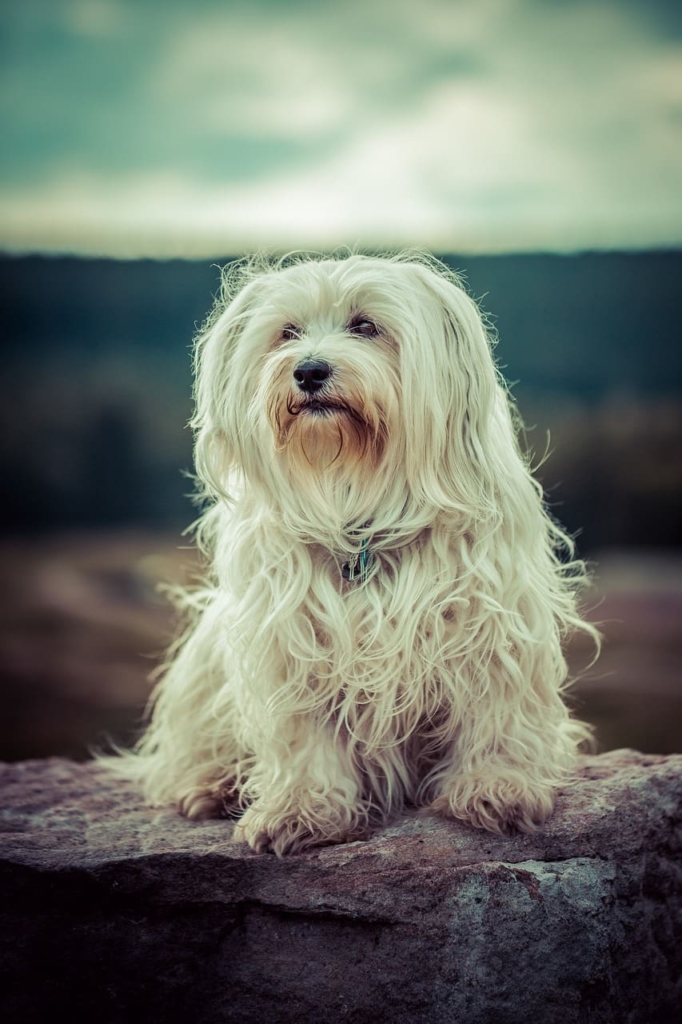
Havanese puppies are simply irresistible! These adorable bundles of joy are known for their playful and affectionate nature. As they grow, their charming personalities shine through, making them wonderful additions to any family. With their soft, fluffy coats and expressive eyes, Havanese puppies are hard to resist. They are intelligent and quick learners, making training a delightful experience. However, they do require consistent socialization and positive reinforcement to ensure they grow up into well-behaved adult dogs. Providing them with love, proper care, and plenty of playtime will result in a lifelong bond with these lovable companions.
Black Havanese Puppies
Black Havanese puppies are absolutely stunning! With their lustrous, shiny black coats, they stand out in a crowd. These adorable bundles of fur are not only visually striking but also possess the same lovable and affectionate nature as their Havanese counterparts. Black Havanese puppies are intelligent and eager to please, making them a joy to train.
Types of Havanese Dogs
The Havanese breed encompasses different types or variations, each with its own unique characteristics and appearances. Here are some of the notable types of Havanese dogs:
1. Standard Havanese:
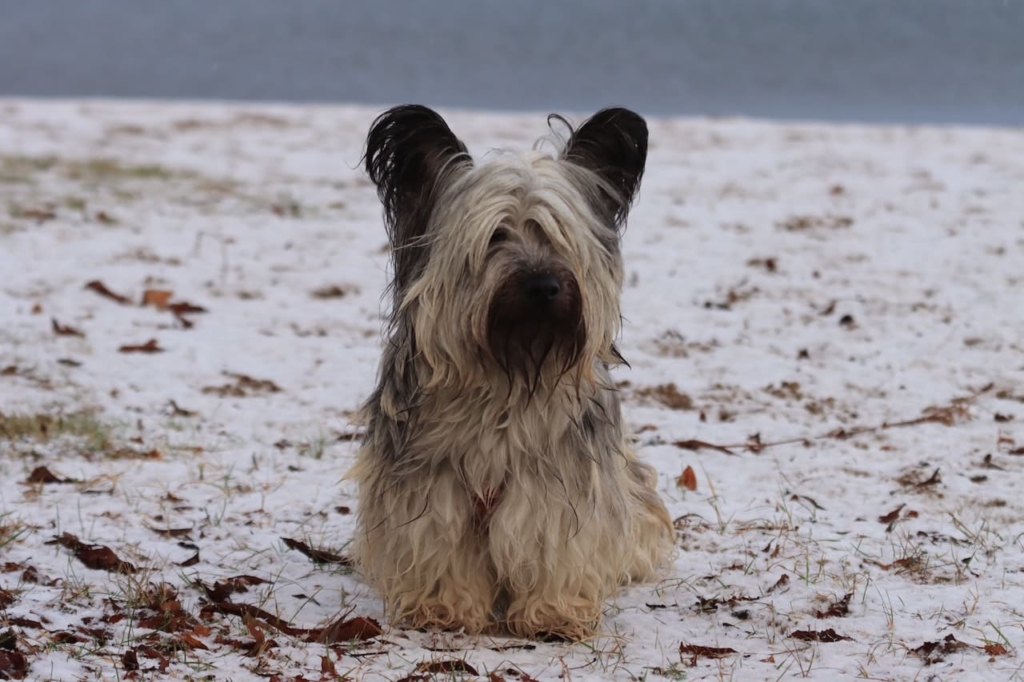
The standard Havanese refers to the most common type of Havanese dogs. They have a small to medium-sized build, typically weighing between 7 to 13 pounds (3 to 6 kilograms). Standard Havanese dogs have a long, silky coat that can come in various colours, including white, cream, black, chocolate, and more.
2. Parti-Colour Havanese:

Parti-colour Havanese refers to dogs with a coat that features patches of different colours. These dogs have a base coat of white combined with other colours such as black, brown, or grey. The party-colour pattern adds a unique and eye-catching element to their appearance, making them stand out from the standard solid-coloured Havanese.
Havanese Colours
There are several colour and coat variations in Havanese Dogs, such as:
Black Havanese
Black Havanese dogs are a captivating sight with their sleek and shiny ebony coats. This colour variation adds a touch of elegance to the already charming Havanese breed. Black Havanese puppies grow up to be playful and affectionate companions, bringing joy and love to their families.
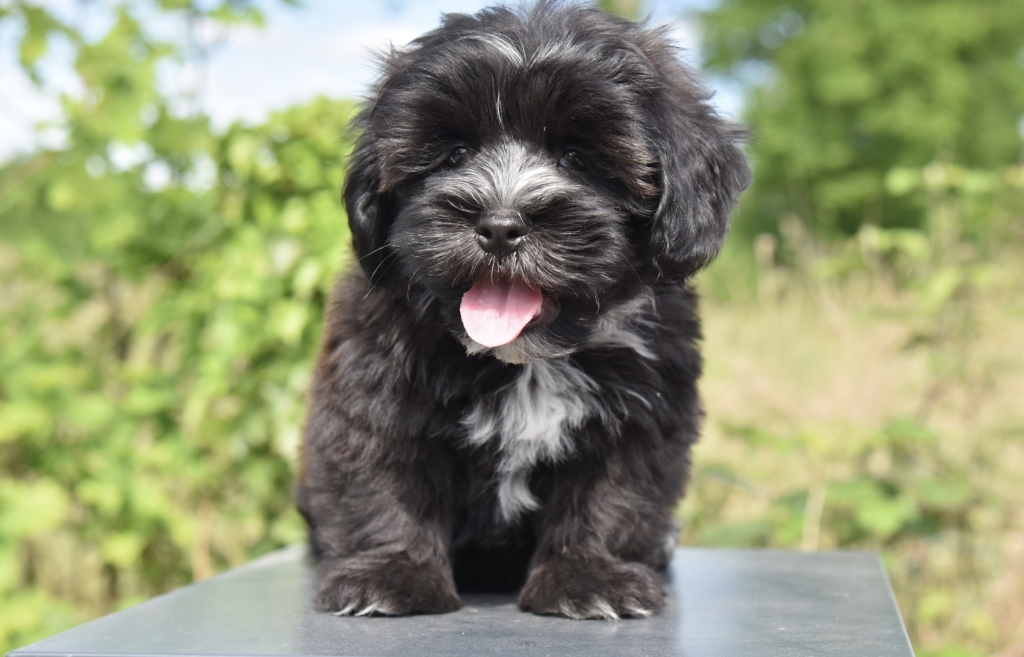
Chocolate Havanese
The Chocolate Havanese is a delightful variation of the breed with rich, luscious brown coats resembling the colour of delicious chocolate. These adorable puppies grow up to be loyal and friendly adult dogs, making them wonderful family pets. Their stunning coat colour adds a touch of warmth and sweetness to their already lovable personalities.

White Havanese
White Havanese dogs exude elegance and purity with their pristine, snow-white coats. This colour variation showcases the breed’s beauty and grace. White Havanese puppies grow into affectionate and sociable dogs, always ready to shower their owners with love. Their white coats are not only visually appealing but also provide a canvas for showcasing stylish accessories, like colourful collars or bandanas.
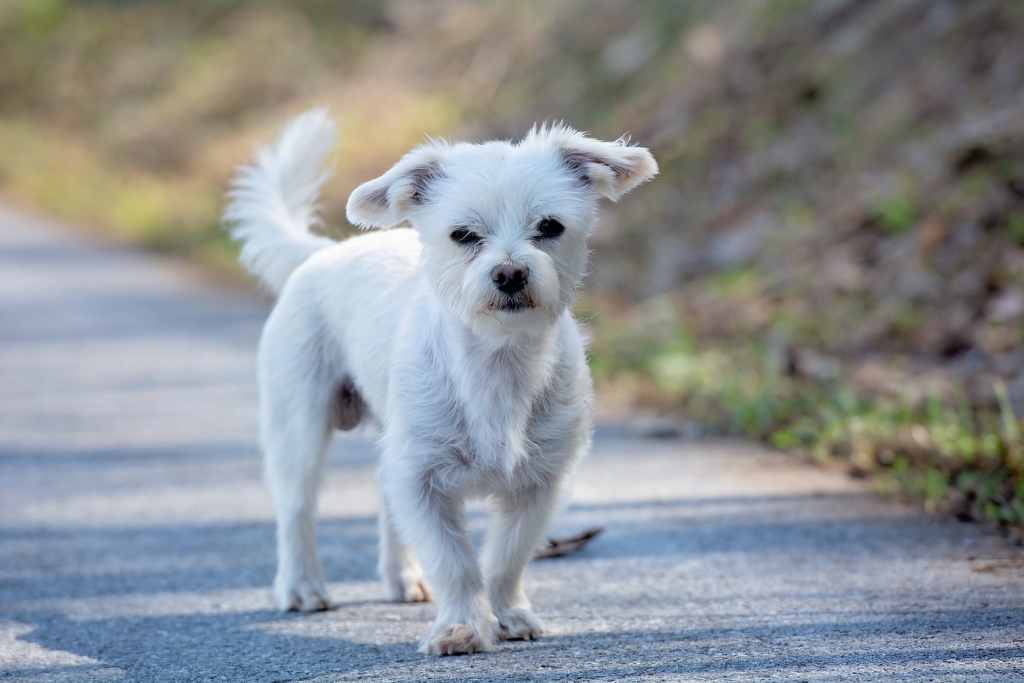
Brown Havanese
Brown Havanese dogs have a charming and earthy coat colour that ranges from light brown to rich chocolate tones. This warm and inviting colour variation adds a touch of coziness to the breed. Brown Havanese puppies grow into loyal and playful adult dogs, making them excellent companions for individuals or families. Their unique coat colour sets them apart and draws attention wherever they go.

Havanese Mix
There are several Havanese Mix breeds, for example, Havanese mix with a poodle, Maltese, Bichon, Shih Tzu, etc, let’s explore all of them in detail:
Havanese Poodle Mix
The Havanese Poodle Mix, also known as a Havapoo or Havadoodle, combines the intelligence and trainability of the Poodle with the charming personality of the Havanese. These adorable mixed-breed dogs inherit a variety of coat types, ranging from curly to wavy, and they can come in different colours. Havapoo dogs are typically friendly, affectionate, and highly adaptable, making them great companions for families and individuals alike.

Havanese Shih Tzu Mix
The Havanese Shih Tzu Mix, also known as a Havashu or Havatzu, brings together the playful nature of the Havanese with the affectionate and loyal traits of the Shih Tzu. These mixed-breed dogs often have a luxurious, long coat that requires regular grooming. Havashu dogs are known for their friendly and sociable personalities, making them excellent family pets.
Havanese Maltese Mix
The Havanese Maltese Mix, often referred to as a Havamalt or Maltese Havanese, combines the adorable qualities of both breeds. These mixed-breed dogs have silky, long coat that needs regular brushing and grooming. Havamalt dogs are typically gentle, and affectionate, and enjoy being in the company of their loved ones.
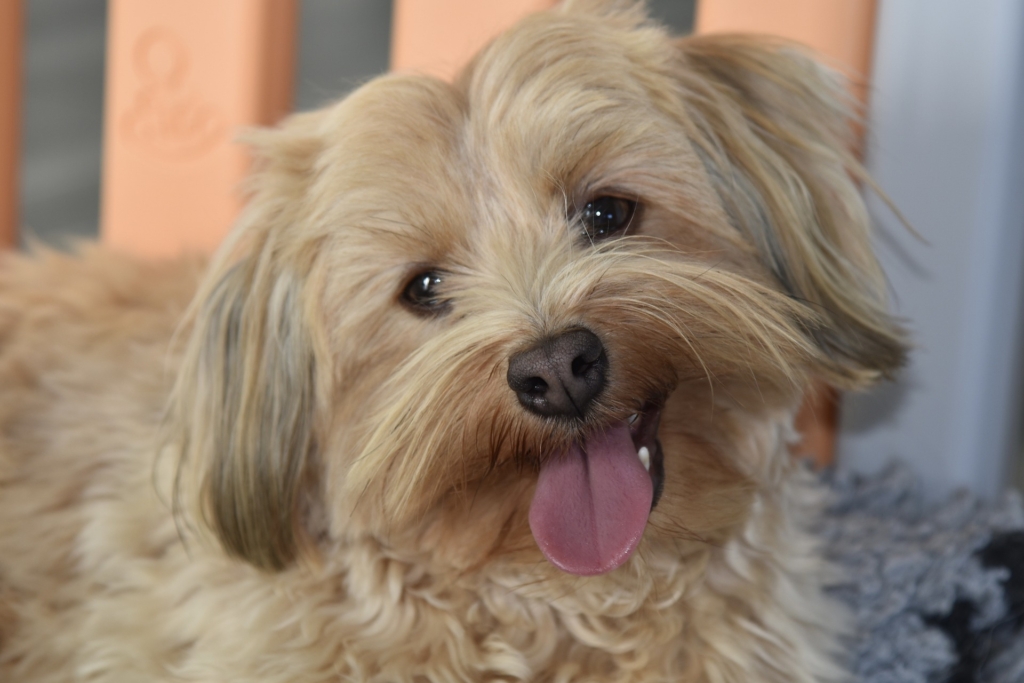
Havanese Bichon Mix
The Havanese Bichon Mix, also known as a Havachon or Bichon Havanese, is a delightful blend of the Havanese and Bichon Frise breeds. These mixed-breed dogs inherit the playful and sociable nature of both breeds. They often have a soft, fluffy coat that requires regular grooming to maintain its appearance. Havachon dogs are known for their friendly demeanour, intelligence, and adaptability.

Havanese Chihuahua Mix
The Havanese Chihuahua Mix sometimes referred to as a Havachihuahua or Chihuahua Havanese, combines the spirited nature of the Chihuahua with the affectionate personality of the Havanese. These mixed-breed dogs can have a variety of coat types and colours, depending on their parentage. Havachihuahua dogs are typically loyal, and lively, and enjoy being the centre of attention.
Havanese Yorkshire Mix
The Havanese Yorkshire Mix, also known as a Havashire or Yorkie Havanese, merges the endearing qualities of the Havanese with the bold and confident traits of the Yorkshire Terrier. These mixed-breed dogs can have a range of coat types, from long and silky to a combination of both breeds’ coats. Havashire dogs are known for their intelligence, charm, and affectionate nature.

History of Havanese Dog
The history of the Havanese dog is rich and fascinating. This breed has a lineage that can be traced back to Havana, Cuba, where it was a beloved companion to the island’s aristocracy. Havanese dogs were often seen in the laps of noblewomen and were treasured for their charming personalities and luxurious coats. Over time, the breed faced near extinction but was revived through dedicated efforts. Today, the Havanese is recognized as a delightful and affectionate companion dog worldwide.
Appearance of Havanese Dogs
Havanese dogs have distinct and charming appearances. They are small to medium-sized dogs, typically weighing between 7 to 13 pounds (3 to 6 kilograms). They have a sturdy build with a slightly longer bodies compared to their height. One of their defining features is their long, silky coat, which can come in a variety of colours, including white, black, cream, chocolate, and more. Their expressive eyes and plumed tail add to their overall enchanting look.
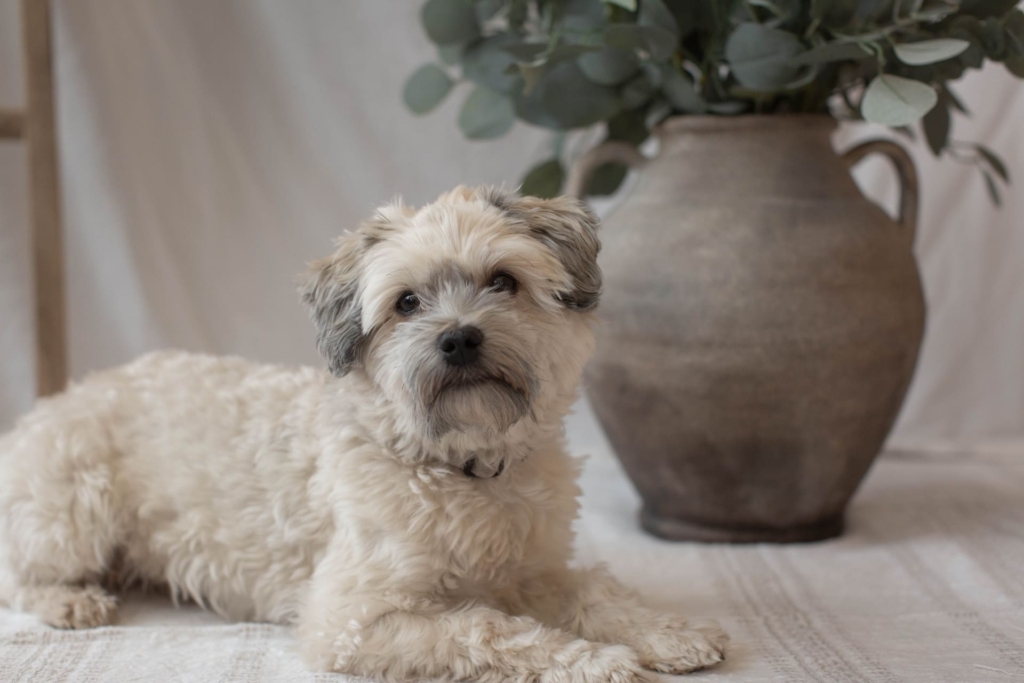
Havanese Dog Temperament
Havanese dogs are known for their friendly and outgoing temperament. They are social butterflies and love being around people, making them excellent family pets. Havanese dogs are highly adaptable and can thrive in different living situations, from apartments to larger homes. They are intelligent, eager to please, and quick learners, which makes training a joyful experience. Their affectionate and gentle nature makes them great companions for individuals of all ages.
Havanese Personality Problems
While Havanese dogs are generally well-mannered and friendly, like any breed, they can have certain personality challenges if not properly trained and socialized. Some common issues that may arise include separation anxiety, excessive barking, and possessiveness. However, with early socialization, consistent training, and positive reinforcement techniques, these problems can be minimized or prevented altogether. It’s important to provide Havanese dogs with proper mental and physical stimulation to ensure a well-balanced and happy personality.

Behaviour of Havanese Dog
Havanese dog demeanour is frequently described as lively playful, and loving. They like being a member of the family and will willingly join their owners in activities. When properly introduced and socialised, Havanese dogs are considered to be good with children and other pets. They may develop attachments to their human friends and display velcro-like conduct, preferring to remain near by. Their outgoing and affable personalities make them a delight to be around.

Are Havanese Hypoallergenic
Yes, Havanese dogs are often considered hypoallergenic. While no dog breed is completely hypoallergenic, Havanese dogs have hair instead of fur, which reduces the amount of dander they produce. Dander is the primary allergen that causes allergic reactions in individuals with dog allergies.
Full Grown Havanese
When fully grown, Havanese dogs typically reach a height of around 8.5 to 11.5 inches (22 to 29 centimeters) at the shoulder. They generally weigh between 7 to 13 pounds (3 to 6 kilograms), with males often being slightly larger than females. Havanese dogs reach their full adult size and weight by the age of 12 to 18 months.

Havanese Dog Price
The price of Havanese dogs can vary depending on factors such as the breeder’s reputation, lineage, location, and quality. In the United States, Havanese dog prices typically range from $1,000 to $3,500 or more. In Indian Rupees, prices can range from approximately ₹75,000 to ₹2,50,000 or more. In the United Kingdom, prices range from £800 to £3,000 or more.
Havanese Price In India
In India, the price of a Havanese dog can range from approximately ₹75,000 to ₹2,50,000 or more. The price may vary depending on factors such as the breeder’s location, the dog’s lineage and pedigree, and the demand for the breed in the specific region.
Havanese Price In United States:
In the United States, the price of a Havanese dog typically ranges from $1,000 to $3,500 or more. The cost can vary based on factors such as the breeder’s reputation, the lineage and pedigree of the dog, and the dog’s overall quality.
Havanese Price In United Kingdom:
In the United Kingdom, the price of a Havanese dog can range from £800 to £3,000 or more. The cost may depend on factors such as the breeder’s reputation, the dog’s lineage and quality, and the geographical location within the UK.
Havanese Puppy Price
Havanese Puppy Price in United States: In the United States, the price of a Havanese puppy can range from $700 to $1,500. The cost may vary depending on factors such as the reputation of the breeder, the lineage and pedigree of the puppy, and any additional expenses such as vaccinations or health checks.
Havanese Puppy Price in India: In India, the price of a Havanese puppy can range from approximately ₹40,000 to ₹80,000. The cost may depend on factors such as the breeder’s location, the puppy’s lineage and quality, and any other expenses associated with the puppy’s care.
Havanese Puppy Price in United Kingdom: In the United Kingdom, the price of a Havanese puppy can range from £400 to £1,000. The cost may vary based on factors such as the breeder’s reputation, the puppy’s pedigree and quality, and any additional services or benefits provided by the breeder.
Havanese Prices In Major USA, UK and Indian Cities
Here are Havanese Prices In Major USA, UK and Indian Cities:
| Country | City | Price Range (USD) | Price Range (GBP) | Price Range (INR) |
|---|---|---|---|---|
| USA | Havanese Price In New York | $1,000-$3,500 | £800-£3,000 | ₹75,000-₹2,50,000 |
| USA | Havanese Price In Los Angeles | $1,100-$3,100 | £800-£3,000 | ₹75,000-₹2,50,000 |
| USA | Havanese Price In Chicago | $900-$2,500 | £800-£3,000 | ₹75,000-₹2,50,000 |
| USA | Havanese Price In Houston | $800-$3,000 | £800-£3,000 | ₹75,000-₹2,50,000 |
| UK | Havanese Price In London | £800-£3,000 | $1,000-$3,500 | ₹75,000-₹2,50,000 |
| UK | Havanese Price In Manchester | £800-£3,000 | $1,000-$3,500 | ₹75,000-₹2,50,000 |
| UK | Havanese Price In Birmingham | £800-£3,000 | $1,000-$3,500 | ₹75,000-₹2,50,000 |
| UK | Havanese Price In Glasgow | £800-£3,000 | $1,000-$3,500 | ₹75,000-₹2,50,000 |
| India | Havanese Price In Mumbai | ₹75,000-₹2,50,000 | $1,000-$3,500 | £800-£3,000 |
| India | Havanese Price In Delhi | ₹75,000-₹2,50,000 | $1,000-$3,500 | £800-£3,000 |
| India | Havanese Price In Bangalore | ₹75,000-₹2,50,000 | $1,000-$3,500 | £800-£3,000 |
| India | Havanese Price In Kolkata | ₹75,000-₹2,50,000 | $1,000-$3,500 | £800-£3,000 |
Factors that Affect the Price of Havanese Dog
The price of a Havanese dog can be influenced by various factors. These include the reputation of the breeder, the lineage and pedigree of the dog, the dog’s physical characteristics and health, and the demand for the breed in the market. Additionally, factors like geographical location and the breeder’s expenses in raising and caring for the dogs can also play a role in determining the price.
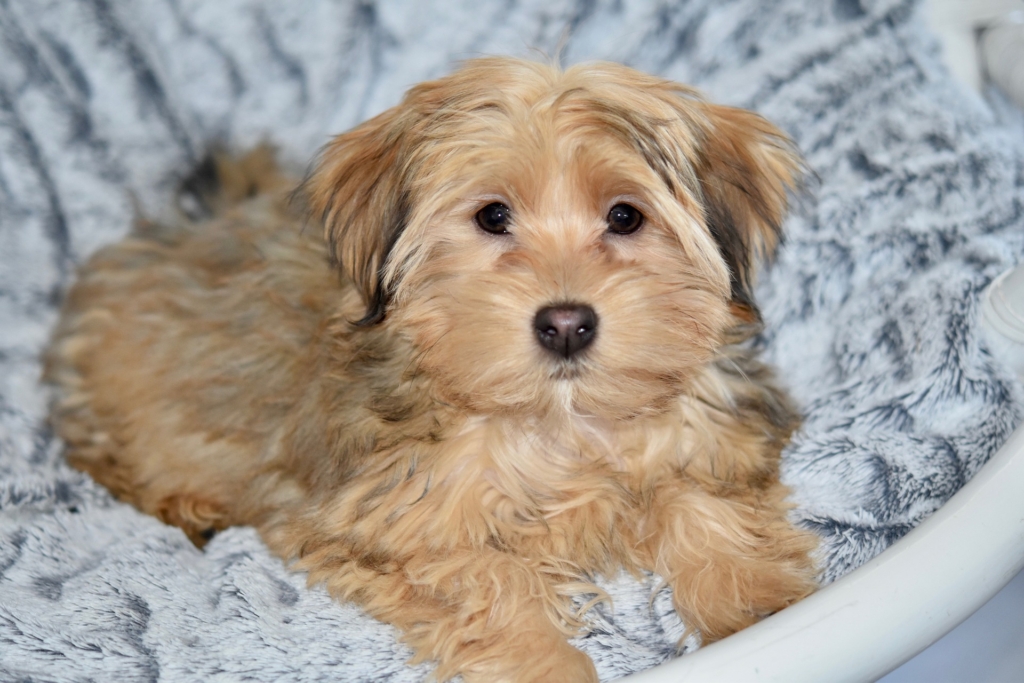
Havanese Breeders
Havanese Breeders in Different Countries:
| Country | Breeder | Location | Contact Info |
|---|---|---|---|
| USA | Happy Havanese | New York, NY | hhteam@gmail.com |
| USA | Sunshine Pups | Los Angeles, CA | sunpups@gmail.com |
| UK | Havanese Haven | London | havhaven@gmail.com |
| UK | Dreamy Dogs | Manchester | dreamydogs@gmail.com |
| India | Royal Havanese | Mumbai | royalhav@gmail.com |
| India | Havanese Delight | Delhi | delightdogs@gmail.com |
Havanese Breeders Florida
Certainly! Here are a few Havanese breeders in Florida along with their contact information:
- Royal Flush Havanese Location: Dunnellon, Florida:
- Email: info@royalflushhavanese.com
- Phone: (352) 445-3191
2. Havanese By Angela Location: Miami, Florida
- Email: havanesebyangela@gmail.com
- Phone: (305) 815-6146
3. Havana Silk Dogs Location: St. Augustine, Florida:
- Email: havanasilkdogs@yahoo.com
- Phone: (904) 315-8888
4. SherRex Havanese Location: Land O’ Lakes, Florida:
- Email: info@sherraxhavanese.com
- Phone: (813) 996-2249
Monthly Maintenance Cost of Havanese Dogs:
A Havanese dog requires regular grooming. These costs include high-quality dog food, grooming supplies, frequent veterinarian check-ups, vaccines, parasite prevention treatments, and possibly training or behavioural programmes. These continuing costs must be considered to ensure that you can give sufficient care and assistance for your Havanese companion.

Availability of Havanese Dogs in India:
The availability of Havanese dogs in India can vary based on several factors. While the breed is gaining popularity, it may still be relatively less common compared to other dog breeds. The availability can depend on the presence of reputable breeders in specific regions and their breeding programs.
The true cost of owning a Havanese Dogs:
Understanding the true cost of owning a Havanese dog goes beyond the initial purchase price. It includes ongoing expenses such as food, grooming, veterinary care, training, and potential unforeseen medical costs. It’s essential to budget and plan for these expenses to ensure that you can provide a healthy and comfortable life for your Havanese companion.

Facts about Havanese Dogs
Here are some key facts about Havanese dogs:
- Origin: Havanese dogs are believed to have originated in Cuba and are named after the capital city of Havana.
- Size: They are a small breed, typically weighing between 7 to 13 pounds (3 to 6 kilograms) and standing about 8.5 to 11.5 inches (22 to 29 centimeters) tall at the shoulder.
- Lifespan: Havanese dogs have a relatively long lifespan, averaging between 14 to 16 years, although some can live even longer with proper care.
- Coat: They have a luxurious double coat that consists of a soft, silky outer coat and a dense, insulating undercoat. Their coat can come in various colours, including white, black, chocolate, and combinations of these colours.
- Temperament: Havanese dogs are known for their friendly, affectionate, and sociable nature. They tend to get along well with people of all ages, including children, and are often referred to as “velcro dogs” due to their desire to be near their owners.
- Intelligence: They are intelligent dogs and generally quick learners. This makes them trainable, and they can excel in obedience, agility, and other dog sports with proper training and positive reinforcement.
- Hypoallergenic: Havanese dogs are often considered hypoallergenic, as they have hair instead of fur. This means they may be a good option for individuals with allergies, although individual reactions can vary.
- Health: Havanese dogs are generally a healthy breed. However, they may be prone to certain health issues such as luxating patellas, cataracts, and progressive retinal atrophy (PRA).
- Family Dogs: They are known to be excellent family companions and are often gentle and patient with children.
- Companion Dogs: Havanese dogs thrive on human companionship and enjoy being part of the family.
Pros and Cons of Havanese Dogs
Here are several Pros and Cons of Havanese Dogs:
| Pros | Cons |
|---|---|
| Affectionate and friendly nature | Require regular grooming |
| Good with children and other pets | May experience separation anxiety |
| Intelligent and trainable | Moderate exercise requirements |
| Adaptable to different lifestyles | Can be prone to barking |
| Minimal shedding | Potential for dental issues |
| Compact size, suitable for apartments | Can be difficult to housetrain |
| Playful and energetic temperament | May have a higher price tag |
| Can excel in various dog sports | Require consistent socialization |
Care Tips for Havanese Dog
Taking care of your Havanese dog is important for their health and happiness. Give them a nutritious diet, frequent exercise, and lots of cerebral stimulation. Keep their coat clean and well-groomed by brushing and washing them on a regular basis. Remember to schedule frequent vet visits, administer immunisations, and practise proper oral hygiene. Socialise your Havanese from a young age to ensure that they establish healthy habits and get along with other animals and people.
Havanese Grooming
Grooming is a crucial part of Havanese care. Their long, silky hair requires regular brushing to prevent matting and tangling. Consider professional grooming every few months to maintain their coat’s health and appearance. Regularly check their ears for any signs of infection or debris. Trim their nails regularly and brush their teeth to maintain oral hygiene. Proper grooming not only keeps them looking great but also helps maintain their overall health.

Havanese Haircuts
Havanese haircuts can vary based on personal preference and the dog’s comfort. Popular styles include the puppy cut, where the hair is trimmed short for easier maintenance, and the teddy bear cut, which leaves the hair longer for a fluffy appearance.
Havanese Short Haircuts
While Havanese dogs have a long, silky coat, some owners prefer shorter haircuts for easier maintenance. Short haircuts can help prevent matting and make grooming more manageable. Popular short haircuts for Havanese include the lamb cut and the summer cut.
Havanese Teddy Bear Cut
The teddy bear cut is a popular choice for Havanese dogs. It involves trimming the hair to a longer length all around the body, giving them a cute and fluffy appearance reminiscent of a teddy bear. The teddy bear cut requires regular brushing to prevent matting and tangling.
Do Havanese Shed
Havanese dogs are known for being low-shedding. While no dog is completely hypoallergenic, Havanese are considered a good choice for individuals with allergies. Their hair grows continuously instead of shedding like other breeds.
Havanese Size
Havanese dogs are small to medium-sized dogs. On average, they typically stand between 8.5 to 11.5 inches (21.5 to 29 cm) tall at the shoulder. Their size makes them suitable for various living situations, including apartments and houses with limited space.
Havanese Weight
The weight of a Havanese dog can vary, but on average, they weigh between 7 to 13 pounds (3 to 6 kg). It’s important to monitor their weight and ensure they maintain a healthy body condition through a balanced diet and regular exercise.
Havanese Health Issues
Like all dog breeds, Havanese dogs may be prone to certain health issues. Common health concerns in Havanese include luxating patellas (loose kneecaps), progressive retinal atrophy (a genetic eye disorder), heart murmurs, and dental problems. Regular veterinary check-ups, proper nutrition, exercise, and maintaining good dental hygiene can help prevent or detect these issues early.
Havanese Lifespan
The typical lifespan of a Havanese dog is around 14 to 16 years. Providing them with proper nutrition, regular exercise, and routine veterinary care can contribute to their longevity. Remember that individual Havanese dogs may have variations in their lifespan based on genetics, overall health, and quality of care.
Food for Havanese Dogs
Suggested Food for Havanese Dogs;
| Food Type | Description |
|---|---|
| High-quality dog food | Opt for a balanced, premium dog food specifically for small breeds like Havanese. |
| Fresh fruits and vegetables | Incorporate a variety of fresh fruits and vegetables into their diet as healthy treats or supplements. Apples, carrots, blueberries, and green beans are some examples of dog-friendly options. |
| Lean protein | Include lean protein sources in their diet, such as chicken, turkey, fish, or lean cuts of beef. |
| Healthy carbohydrates | Choose whole grains like brown rice or oats as a source of healthy carbohydrates. |
| Limited treats | Freshwater |
| Fresh water | Ensure your Havanese has access to fresh, clean water at all times. Regularly check and refill their water bowl to keep them hydrated throughout the day. |
Names for Havanese Dogs
Recommended Names for Havanese Dogs:
| Names for Havanese Dogs |
|---|
| Coco |
| Milo |
| Luna |
| Max |
| Bella |
| Teddy |
| Daisy |
| Charlie |
| Lucy |
| Oliver |
| Lily |
| Rocky |
| Rosie |
| Baxter |
| Sophie |
| Oscar |
| Molly |
| Toby |
| Ruby |
| Winston |
Havanese Dog Care and Training Video
Conclusion:
In summary, Havanese dogs are lovely, affectionate friends who offer delight to many families. They are amiable and versatile, making them ideal for homes with children and other pets. Their intelligence and trainability make them a joy to work with, and they may thrive in a variety of dog sports. While their long, silky coats necessitate frequent brushing, their little shedding makes them a suitable choice for allergy sufferers. Overall, Havanese dogs are a fantastic addition to any loving family.
Frequently Asked Questions on Havanese Dogs:
-
Are Havanese dogs good with children?
Yes, Havanese dogs are generally good with children. They have a friendly and gentle nature, making them suitable companions for kids.
-
Do Havanese dogs require a lot of grooming?
Yes, Havanese dogs require regular grooming to keep their long, silky coats in good condition. Daily brushing is recommended to prevent matting and tangling.
-
Are Havanese dogs easy to train?
Yes, Havanese dogs are intelligent and trainable. They respond well to positive reinforcement training methods such as rewards, praise, and treats
-
Do Havanese dogs get along with other pets?
Yes, Havanese dogs generally get along well with other pets, including cats and other dogs. Early socialization and gradual introductions are important to ensure positive interactions.
-
Do Havanese dogs require a lot of exercise?
While Havanese dogs are energetic, they don’t have extremely high exercise requirements. Daily walks, interactive playtime, and mental stimulation activities are usually sufficient to keep them happy and healthy.
-
Are Havanese dogs prone to any health issues?
Havanese dogs, like any breed, may be prone to certain health issues. Some common health concerns in Havanese include luxating patellas (loose kneecaps), progressive retinal atrophy (a genetic eye disorder), heart murmurs, and dental problems.
Recommended –


























